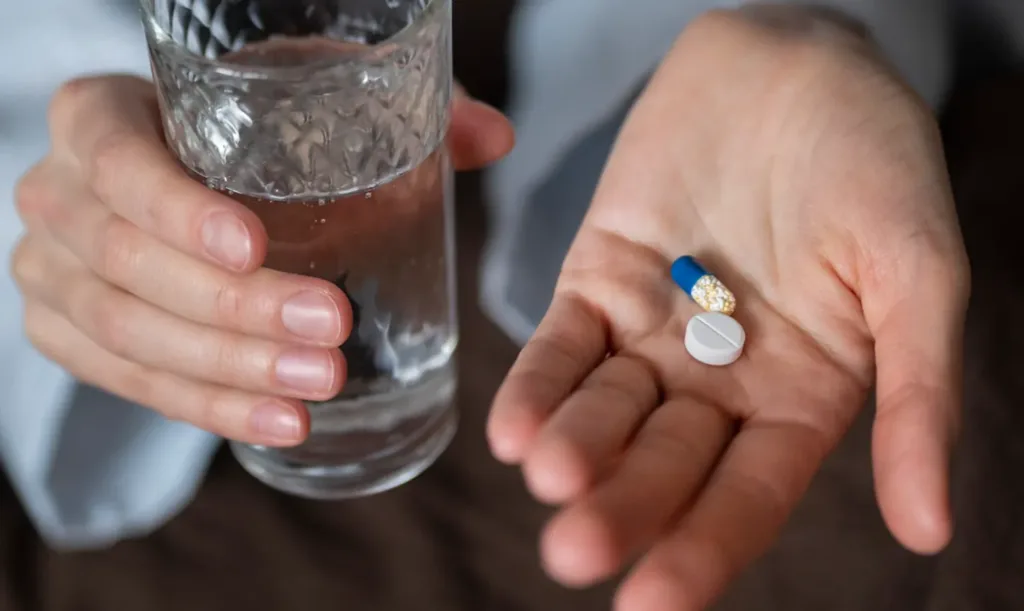Addiction to opioid analgesics and its treatment
Addiction to opioid analgesics and its treatment
The United States faces a serious public health crisis related to addiction to opioid painkillers. Medications such as Oxycodone, Hydrocodone, Fentanyl, Morphine and Tramadol have become unwitting protagonists of this epidemic. In this article, we will carefully explore the problem of addiction to these opioids from the perspective of psychiatry and psychology. We will analyze its causes, clinical manifestations and the treatment strategies used by professionals to guide those affected towards recovery.
Opioid Analgesics and Their Medical Use
Opioid pain relievers, such as Oxycodone, Hydrocodone, and Morphine, are drugs prescribed to relieve moderate to severe pain. While effective in their purpose, their addictive potential poses significant challenges in administration.
Causes and Risk Factors of Addiction to Opioid Painkillers
Addiction to opioid pain relievers can arise from multiple causes and risk factors, including:
- Inappropriate Medical Prescriptions: The overuse of opioids in pain treatment has contributed to the rise of addiction.
- Chronic pain: Individuals with chronic pain may develop dependence in search of relief.
- History of Substance Abuse: Those with histories of substance abuse are at higher risk for opioid addiction.
- Psychological factors: The presence of disorders such as depression or anxiety can increase vulnerability to addiction.
- Genetic factors: Genetic predisposition can also influence susceptibility to opioid addiction.
Evaluation of Addiction to Opioid Analgesics
Psychiatric and psychological evaluation is an essential component in the treatment of opioid addiction. Health professionals evaluate medical history, mental status, and psychiatric comorbidities to design a personalized therapeutic approach.
Clinical Manifestations and Diagnosis
Addiction to opioid analgesics manifests itself in symptoms such as compulsive drug seeking, tolerance, and withdrawal symptoms. An accurate diagnosis is essential for effective treatment. In it International Rehabilitation Center BACK we can help you.

Comprehensive Treatment of Addiction to Opioid Analgesics
Treatment of addiction to opioid pain relievers involves various strategies, including:
- Supervised Detox: The process of safely eliminating opioids under medical supervision.
- Opioid Replacement Therapy (ORT): The use of medications such as buprenorphine or methadone to reduce dependence and prevent relapse.
- Behavior Therapy: Cognitive behavioral therapy and other modalities address underlying factors and teach relapse prevention skills.
- Management of Psychiatric Comorbidities: Treatment of concurrent psychiatric disorders.
- Psychosocial Support and Help Groups: Support from family, friends, and support groups is essential for recovery.
- Education and Prevention: Teach about safe opioid use and strategies to avoid relapse.
REHABILITATION CENTER BACK


COMPREHENSIVE TREATMENT FOR ADDICTION TO OPIOID ANALGESICS
He Rehabilitation Center BACK is an institution committed to addressing these addictions from a therapeutic and recovery perspective.
A Specialized Response
Amid growing concerns about opioid addiction, the Rehabilitation Center BACK It stands out as an International Institution for Detoxification and Rehabilitation of these addictions. Our mission is to provide a specialized and effective response to those struggling with dependence on opioid painkillers in their various forms, or any other addiction.
Our Experience in Treating Opioid Addiction

In it Rehabilitation Center BACK, we understand the complexity of opioid addiction and its impact on the lives of those who suffer from it. We have a team of highly trained and experienced addiction treatment professionals, including doctors, psychologists, therapists, psychiatrists, and support staff.
Our Therapeutic Approach
Our therapeutic approach is comprehensive and personalized. We understand that each individual is unique and therefore requires treatment tailored to their specific needs. Our treatment process is based on the following principles:
- Comprehensive Evaluation: We perform a thorough evaluation to understand each patient's medical history, psychological status, and individual needs. This allows us to design an appropriate individualized treatment plan.
- Supervised Detox: Patient detoxification is carried out under careful medical supervision, ensuring safety and comfort during this crucial process.
- Individual Therapy: We offer individual therapy to address the underlying causes of addiction, teach coping strategies, and promote personal awareness.
- Group Therapy: Group therapy provides a safe space to share experiences, gain mutual support, and learn from others facing similar challenges.
- Specialized Therapies: We have therapists specialized in the treatment of opioid addictions, which allows for a more specific and effective approach.

Psychosocial Support and Relapse Prevention
In it Rehabilitation Center BACK, we recognize the importance of psychosocial support in the recovery process. We encourage the participation of family and friends in the treatment process, since the support of the social network is essential. In addition, we work on relapse prevention, providing patients with the necessary tools to face temptations and situations that trigger addiction.
Treatment of Comorbidities
Opioid addiction is often associated with other mental health conditions, such as depression or anxiety. At the VOLVER Rehabilitation Center, we address these comorbidities comprehensively, providing psychopharmacological and therapeutic treatment when necessary.

Tangible Results
In it Rehabilitation Center BACK, we measure our success by the tangible results we achieve in the lives of our patients. We have witnessed countless successful recovery stories, where individuals who were once trapped in opioid addiction now enjoy healthy, substance-free lives.
A Path Towards Hope

Opioid addiction can be devastating, but it is not insurmountable. In it Rehabilitation Center BACK, we provide a path to hope and recovery. Our commitment is to help individuals overcome this addiction and regain control over their lives.
Our mission is to guide individuals toward recovery, offering them the tools and support necessary to build a future free of opioid addiction.
CONTACT THE REHABILITATION CENTER RETURN
If you have an addiction problem or a family member with said problem, do not hesitate to contact us for information without obligation, we will help you with everything you need.
Telephones: (+1) 849 856 3789 / (+1) 809 534 6002
WhatsApp: (+1) 849 856 3789
The United States faces a serious public health crisis related to addiction to opioid painkillers. Medications such as Oxycodone, Hydrocodone, Fentanyl, Morphine and Tramadol have become unwitting protagonists of this epidemic. In this article, we will carefully explore the problem of addiction to these opioids from the perspective of psychiatry and psychology. We will analyze its causes, clinical manifestations and the treatment strategies used by professionals to guide those affected towards recovery.
Opioid Analgesics and Their Medical Use
Opioid pain relievers, such as Oxycodone, Hydrocodone, and Morphine, are drugs prescribed to relieve moderate to severe pain. While effective in their purpose, their addictive potential poses significant challenges in administration.
Causes and Risk Factors of Addiction to Opioid Painkillers
Addiction to opioid pain relievers can arise from multiple causes and risk factors, including:
- Inappropriate Medical Prescriptions: The overuse of opioids in pain treatment has contributed to the rise of addiction.
- Chronic pain: Individuals with chronic pain may develop dependence in search of relief.
- History of Substance Abuse: Those with histories of substance abuse are at higher risk for opioid addiction.
- Psychological factors: The presence of disorders such as depression or anxiety can increase vulnerability to addiction.
- Genetic factors: Genetic predisposition can also influence susceptibility to opioid addiction.
Evaluation of Addiction to Opioid Analgesics
Psychiatric and psychological evaluation is an essential component in the treatment of opioid addiction. Health professionals evaluate medical history, mental status, and psychiatric comorbidities to design a personalized therapeutic approach.
Clinical Manifestations and Diagnosis
Addiction to opioid analgesics manifests itself in symptoms such as compulsive drug seeking, tolerance, and withdrawal symptoms. An accurate diagnosis is essential for effective treatment. In it International Rehabilitation Center BACK we can help you.

Comprehensive Treatment of Addiction to Opioid Analgesics
Treatment of addiction to opioid pain relievers involves various strategies, including:
- Supervised Detox: The process of safely eliminating opioids under medical supervision.
- Opioid Replacement Therapy (ORT): The use of medications such as buprenorphine or methadone to reduce dependence and prevent relapse.
- Behavior Therapy: Cognitive behavioral therapy and other modalities address underlying factors and teach relapse prevention skills.
- Management of Psychiatric Comorbidities: Treatment of concurrent psychiatric disorders.
- Psychosocial Support and Help Groups: Support from family, friends, and support groups is essential for recovery.
- Education and Prevention: Teach about safe opioid use and strategies to avoid relapse.
REHABILITATION CENTER BACK


COMPREHENSIVE TREATMENT FOR ADDICTION TO OPIOID ANALGESICS
He Rehabilitation Center BACK is an institution committed to addressing these addictions from a therapeutic and recovery perspective.
A Specialized Response
Amid growing concerns about opioid addiction, the Rehabilitation Center BACK It stands out as an International Institution for Detoxification and Rehabilitation of these addictions. Our mission is to provide a specialized and effective response to those struggling with dependence on opioid painkillers in their various forms, or any other addiction.
Our Experience in Treating Opioid Addiction

In it Rehabilitation Center BACK, we understand the complexity of opioid addiction and its impact on the lives of those who suffer from it. We have a team of highly trained and experienced addiction treatment professionals, including doctors, psychologists, therapists, psychiatrists, and support staff.
Our Therapeutic Approach
Our therapeutic approach is comprehensive and personalized. We understand that each individual is unique and therefore requires treatment tailored to their specific needs. Our treatment process is based on the following principles:
- Comprehensive Evaluation: We perform a thorough evaluation to understand each patient's medical history, psychological status, and individual needs. This allows us to design an appropriate individualized treatment plan.
- Supervised Detox: Patient detoxification is carried out under careful medical supervision, ensuring safety and comfort during this crucial process.
- Individual Therapy: We offer individual therapy to address the underlying causes of addiction, teach coping strategies, and promote personal awareness.
- Group Therapy: Group therapy provides a safe space to share experiences, gain mutual support, and learn from others facing similar challenges.
- Specialized Therapies: We have therapists specialized in the treatment of opioid addictions, which allows for a more specific and effective approach.

Psychosocial Support and Relapse Prevention
In it Rehabilitation Center BACK, we recognize the importance of psychosocial support in the recovery process. We encourage the participation of family and friends in the treatment process, since the support of the social network is essential. In addition, we work on relapse prevention, providing patients with the necessary tools to face temptations and situations that trigger addiction.
Treatment of Comorbidities
Opioid addiction is often associated with other mental health conditions, such as depression or anxiety. At the VOLVER Rehabilitation Center, we address these comorbidities comprehensively, providing psychopharmacological and therapeutic treatment when necessary.

Tangible Results
In it Rehabilitation Center BACK, we measure our success by the tangible results we achieve in the lives of our patients. We have witnessed countless successful recovery stories, where individuals who were once trapped in opioid addiction now enjoy healthy, substance-free lives.
A Path Towards Hope

Opioid addiction can be devastating, but it is not insurmountable. In it Rehabilitation Center BACK, we provide a path to hope and recovery. Our commitment is to help individuals overcome this addiction and regain control over their lives.
Our mission is to guide individuals toward recovery, offering them the tools and support necessary to build a future free of opioid addiction.
CONTACT THE REHABILITATION CENTER RETURN
If you have an addiction problem or a family member with said problem, do not hesitate to contact us for information without obligation, we will help you with everything you need.
Telephones: (+1) 849 856 3789 / (+1) 809 534 6002
WhatsApp: (+1) 849 856 3789
